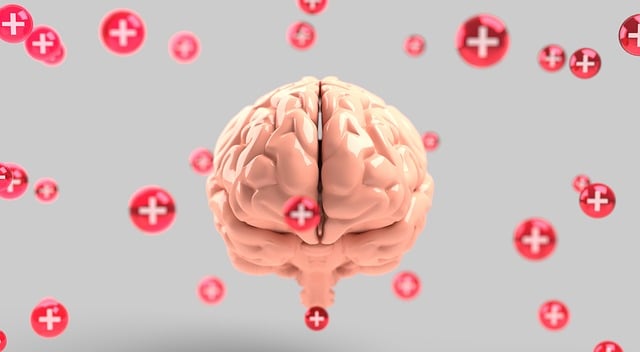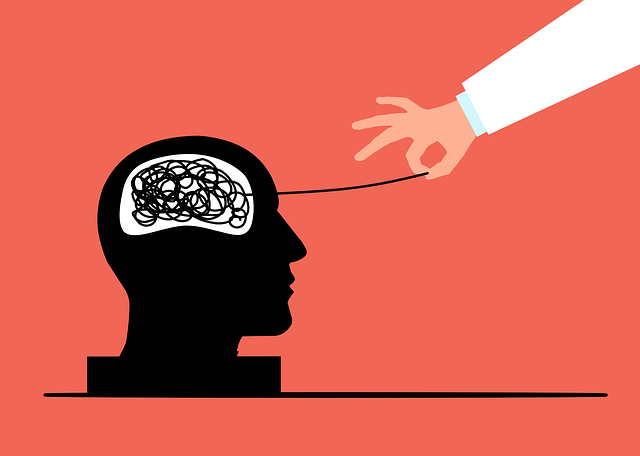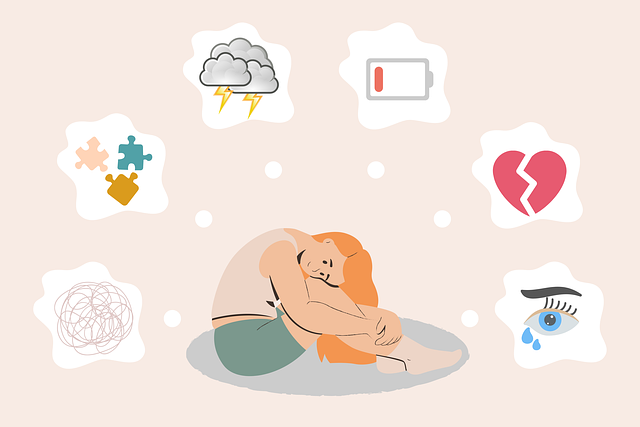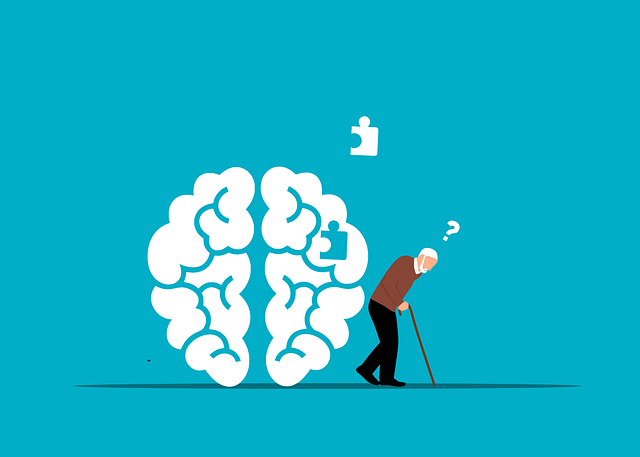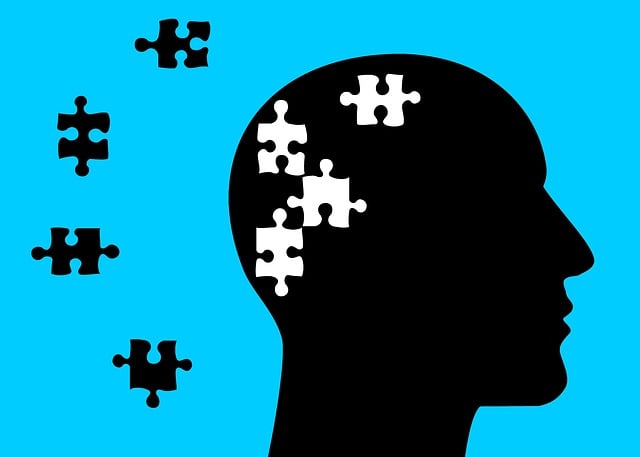Boulder Chronic Illness Therapy tackles mental healthcare challenges by emphasizing comprehensive evaluations beyond surface symptoms. They combine advanced technology with evidence-based practices, like AI-driven platforms and mindfulness meditation workshops, to enhance diagnosis accuracy for conditions like depression. Online screening tools and data analytics enable early intervention and personalized care. Ongoing education ensures therapists stay updated on the latest methods, preventing burnout and improving patient outcomes. Boulder Chronic Illness Therapy leads in integrating innovative approaches into standard mental health practices.
Mental illness diagnosis accuracy is a critical aspect of patient care, with significant implications for treatment outcomes. This article explores current challenges and innovative efforts aimed at enhancing diagnostic precision in mental health. We delve into the complexities of understanding mental health conditions, particularly in navigating the diverse presentations of symptoms. From technology’s role in assessment to the importance of professional training, this comprehensive guide highlights strategies, such as Boulder Chronic Illness Therapy approaches, that can lead to more effective and timely diagnoses.
- Understanding Mental Health Diagnosis: The Current Landscape
- Challenges in Accurate Diagnosis: Unraveling the Complexities
- Innovative Approaches to Enhance Diagnosis Accuracy
- Role of Technology and Digital Tools in Mental Health Assessment
- Training and Education: Equipping Professionals for Better Diagnosis
Understanding Mental Health Diagnosis: The Current Landscape

In today’s world, understanding mental health diagnosis involves navigating a complex landscape where various factors contribute to accuracy and challenges persist. The current approach often relies on subjective reporting, limited assessment tools, and insufficient training for healthcare professionals. This results in misdiagnoses or delayed identification of conditions like depression, which affects millions worldwide. In Boulder Chronic Illness Therapy, experts emphasize the need for comprehensive evaluations that go beyond surface-level symptoms to uncover underlying causes.
Efforts are underway to enhance diagnosis accuracy through innovative strategies. Depression prevention and stress management workshops organized by mental health advocacy groups equip individuals with coping mechanisms, while mental wellness coaching programs development focuses on early intervention. These initiatives, combined with ongoing research into advanced assessment methods, promise a more precise future for mental health diagnosis.
Challenges in Accurate Diagnosis: Unraveling the Complexities

Diagnosing mental illness with precision is a complex challenge faced by healthcare professionals, especially in cases where symptoms overlap or manifest in unique ways. Mental health practitioners in Boulder Chronic Illness Therapy often encounter individuals presenting with diverse experiences and expressions of distress. This complexity arises from several factors, including the vast array of possible disorders, individual differences in how people experience and express their inner states, and cultural influences on symptom manifestation and reporting.
Accurate diagnosis requires a deep understanding of these complexities, involving thorough assessment, clinical judgment, and consideration of personal and cultural contexts. Effective risk management planning for mental health professionals is crucial to navigate these challenges, ensuring safe and compassionate care. By integrating self-care routine development for better mental health and coping skills development into their practice, therapists can maintain optimal performance and provide the highest level of support for their clients.
Innovative Approaches to Enhance Diagnosis Accuracy

In an effort to enhance mental illness diagnosis accuracy, innovative approaches are being explored and implemented across various healthcare settings. One notable strategy involves integrating advanced assessment tools that leverage cutting-edge technology, such as artificial intelligence algorithms, to analyze complex data patterns indicative of specific disorders. For instance, Boulder Chronic Illness Therapy has pioneered the use of AI-driven platforms that consider not only symptoms but also environmental factors and individual resilience building, thereby improving diagnostic reliability.
Additionally, evidence-based therapeutic techniques like mindfulness meditation and positive thinking are being incorporated into diagnosis processes. Programs focusing on cultivating mental fortitude through resilience-building exercises and promoting positive thinking have shown promise in not only enhancing diagnostic accuracy but also improving patient outcomes. These comprehensive strategies combine traditional assessment methods with innovative practices, aiming to create a more nuanced understanding of mental health conditions, ultimately leading to better care for individuals navigating the complexities of their psychological well-being.
Role of Technology and Digital Tools in Mental Health Assessment

In today’s digital era, technology plays a pivotal role in enhancing mental health assessment and diagnosis accuracy, particularly for chronic illness like those managed by Boulder Chronic Illness Therapy. Online platforms and mobile applications offer convenient tools for initial screening and ongoing monitoring of symptoms, such as anxiety or depression. These digital interventions provide individuals with easy access to self-assessment questionnaires and resources, encouraging early detection and intervention.
Furthermore, advanced analytics and artificial intelligence algorithms can analyze vast amounts of data collected from these online tools, helping professionals in the Stress Management Workshops Organization and Emotional Healing Processes to make more informed decisions. By integrating these innovative methods into standard practices, mental health practitioners can improve mood management strategies and deliver tailored care, ultimately advancing the field of Boulder Chronic Illness Therapy.
Training and Education: Equipping Professionals for Better Diagnosis

Mental health professionals play a pivotal role in accurately diagnosing and treating mental illness. To enhance diagnosis accuracy, ongoing training and education are essential. Programs focused on burnout prevention strategies for healthcare providers can significantly reduce stress and improve clinical judgment. By incorporating evidence-based stress reduction methods and emotional regulation techniques into their practices, therapists like those at Boulder Chronic Illness Therapy can maintain a high level of care even in demanding situations.
Regular workshops, webinars, and peer-to-peer learning opportunities equip professionals with the latest research and tools for accurate assessment. These efforts foster a culture of continuous improvement, ensuring that mental health practitioners stay updated on best practices. Such initiatives ultimately contribute to more effective treatment plans and improved patient outcomes.
Mental illness diagnosis accuracy has long been a complex challenge, but with innovative approaches, technology, and enhanced training, we can significantly improve outcomes. By understanding the current landscape and addressing the complexities that hinder accurate diagnosis, healthcare professionals in Boulder Chronic Illness Therapy can provide more effective care. Embracing digital tools and continuing education ensures that mental health practitioners are equipped to navigate the intricate nature of these disorders, ultimately leading to better patient outcomes and a more supportive therapeutic environment.

